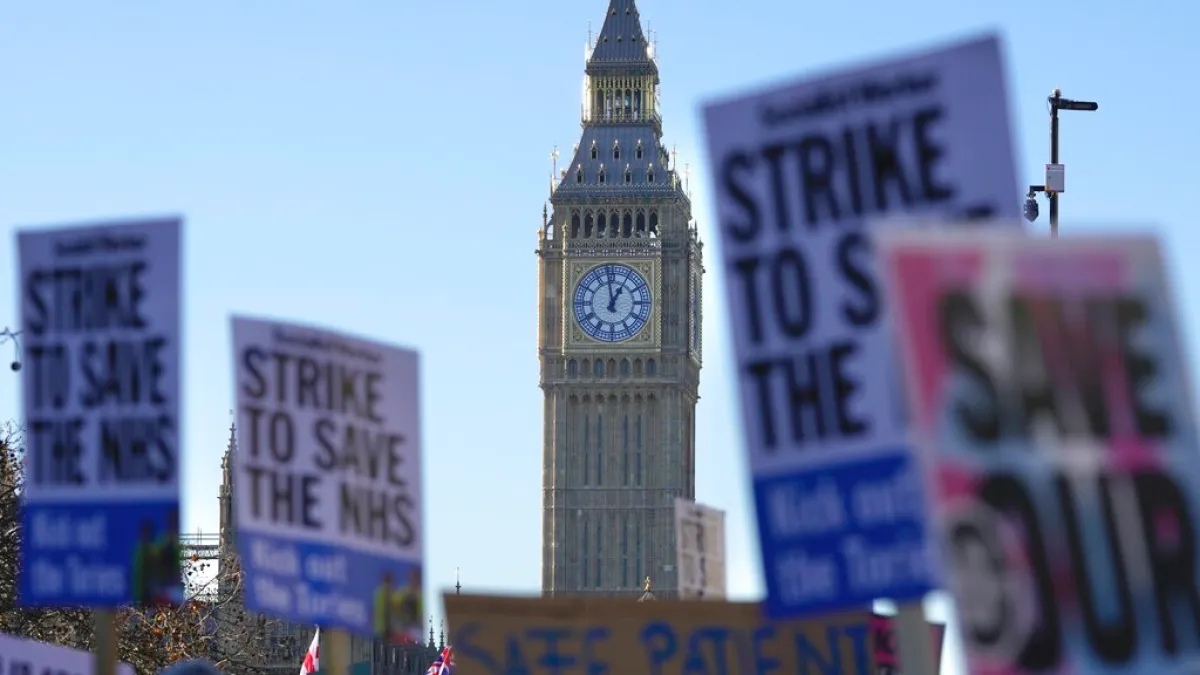On Wednesday, Junior doctors in England ramped up their industrial action, beginning the first walk-out of their biggest strike yet, which hospitals warn could threaten emergency care provision at one of the busiest times of the year.
The British Medical Association (BMA), which represents around 50,000 junior doctors, said its members will walk out on Wednesday for three days, and again for six days from January 3 to 9, in a long-running dispute over pay.
Cheltenham General Hospital said it would close its accident and emergency department as a result of “the very challenging environment,” while hospital bosses in London issued an urgent appeal to the public to use A&E services for “real emergencies only.”
Junior doctors abandoned negotiations with the government after being offered a pay rise of between 8 percent and 10 percent. They are seeking a 35 percent improvement which they say is necessary to cover the impact of inflation over several years.
British health minister Victoria Atkins said significant contingency measures had been taken to reduce disruption, and added that the door remained open to the BMA to return to negotiations.
Hospital bosses said the six-day strike in January would be the longest in the history of Britain’s National Health Service, and added that the timing of the two walk-outs in quick succession over the Christmas break made them particularly difficult.
“The latest round of strikes at the busiest time of the year will bring substantial challenges to the local NHS, particularly hospital services,” said Ananthakrishnan Raghuram, the chief medical officer of the group which runs Cheltenham’s hospital.
Industrial action in the NHS has resulted in the cancellation of 1.2 million operations and appointments this year, hampering British Prime Minister Rishi Sunak’s efforts to cut waiting lists, one of his major priorities.
The government has agreed on fresh pay deals with other healthcare workers including nurses and senior doctors in recent months, ending the threat of strikes from those groups, but the dispute with junior doctors continues.
“I think it’s deeply regrettable that they’ve walked away from these talks,” Britain’s work and pensions minister Mel Stride told Times Radio on Wednesday.




